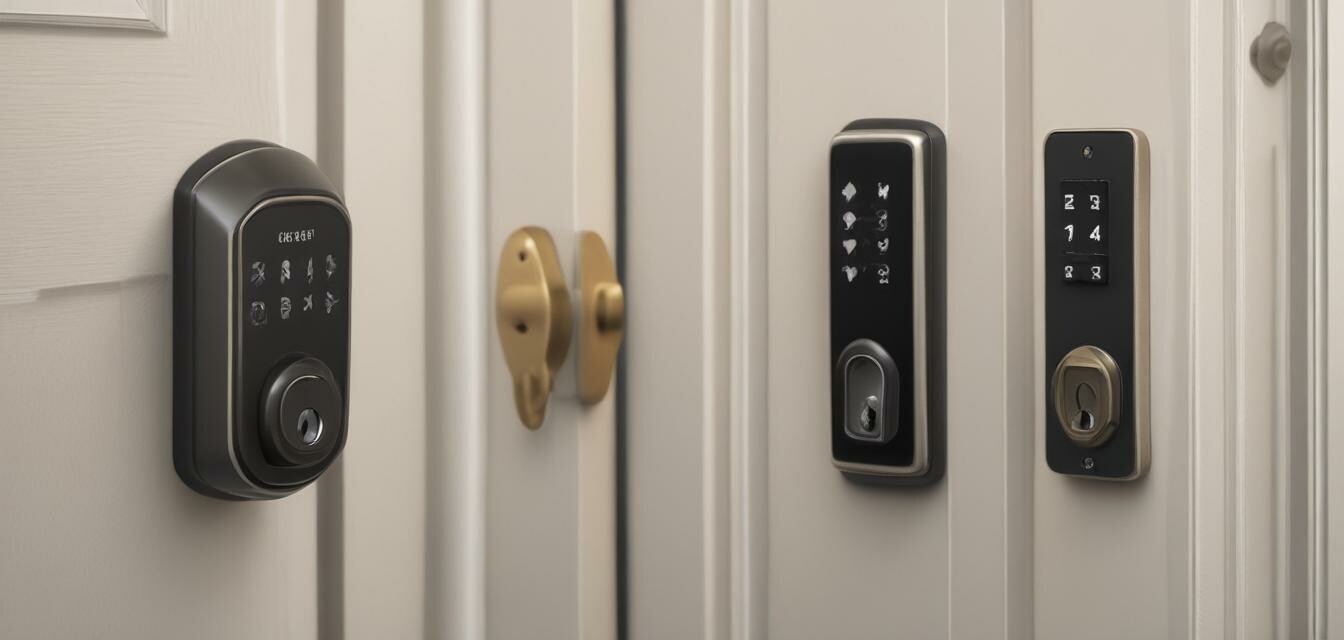
Upgrading Home Security: Smart Locks vs Traditional
Key Takeaways
- Smart locks offer enhanced convenience with features like remote access and keyless entry.
- Traditional locks provide reliable security but may lack the technological advancements found in smart locks.
- Consider your lifestyle and security needs when choosing between smart locks and traditional locks.
In today's world, upgrading your home security is more important than ever. With rising crime rates and advancements in technology, homeowners have a crucial decision to make: should you opt for smart locks or stick with traditional locks? This article will delve into the pros and cons of both, helping you make an informed choice that suits your lifestyle.
What are Smart Locks?
Smart locks are electronic locking mechanisms that can be controlled remotely via smartphones or other devices. With features like keyless entry, mobile notifications, and integration with voice-controlled assistants, smart locks are revolutionizing home security.
Features of Smart Locks
- Keyless Entry: No physical keys required, reducing the risk of losing keys.
- Remote Access: Lock and unlock your door from anywhere.
- Integration: Works with smart home devices like Alexa or Google Assistant.
- Logs and Alerts: Get real-time notifications when someone enters or exits.
What are Traditional Locks?
Traditional locks have been the go-to for securing homes for many years. They typically involve a physical key to operate. While reliable, they may not offer the same features and conveniences as smart locks.
Features of Traditional Locks
- Simple Mechanism: Less likely to malfunction than electronic counterparts.
- Cost-effective: Generally cheaper than smart locks.
- Familiarity: Many people are already accustomed to using traditional locks.
- Limited Access: Security strictly depends on physical keys without a digital interface.
Smart Locks vs Traditional Locks
| Feature | Smart Locks | Traditional Locks |
|---|---|---|
| Keyless Operation | Yes | No |
| Remote Access | Yes | No |
| Integration with Smart Home | Yes | No |
| Security Alerts | Yes | No |
| Installation Complexity | Moderate | Easy |
| Costs | Higher | Lower |
Pros and Cons
Pros of Smart Locks
- Convenience of keyless entry
- Ability to track access and monitor your home remotely
- Integration with smart home appliances
Cons of Smart Locks
- Higher upfront cost
- Dependence on batteries and technology
- Potential vulnerabilities to hacking
Pros of Traditional Locks
- Cost-effective and simple to install
- Dependable and well-understood technology
- Less likely to fail due to power outages
Cons of Traditional Locks
- Dependence on physical keys
- No tracking or alert features
- Not suitable for all modern security needs
Conclusion
Ultimately, the choice between smart locks and traditional locks depends on your personal needs and preferences. Smart locks offer cutting-edge technology with unparalleled convenience, while traditional locks provide a tried-and-true method of securing your home. Assess your security requirements, budget, and comfort level with technology before making your decision.
Recommended Products
As you consider upgrading your home security, take a look at these highly-regarded products:
Hatch Restore 2 Sunrise Alarm Clock
Your Smart Sleep Clock with customizable sleep routines for adults, helping you unwind and wake up energized.
Learn MoreSMONET Keyless Entry Door Lock
Easy to install front door lock with a fingerprint entry system and a keypad for additional security.
Explore NowFurther Reading
If you're interested in enhancing your home security further, check out these resources:

